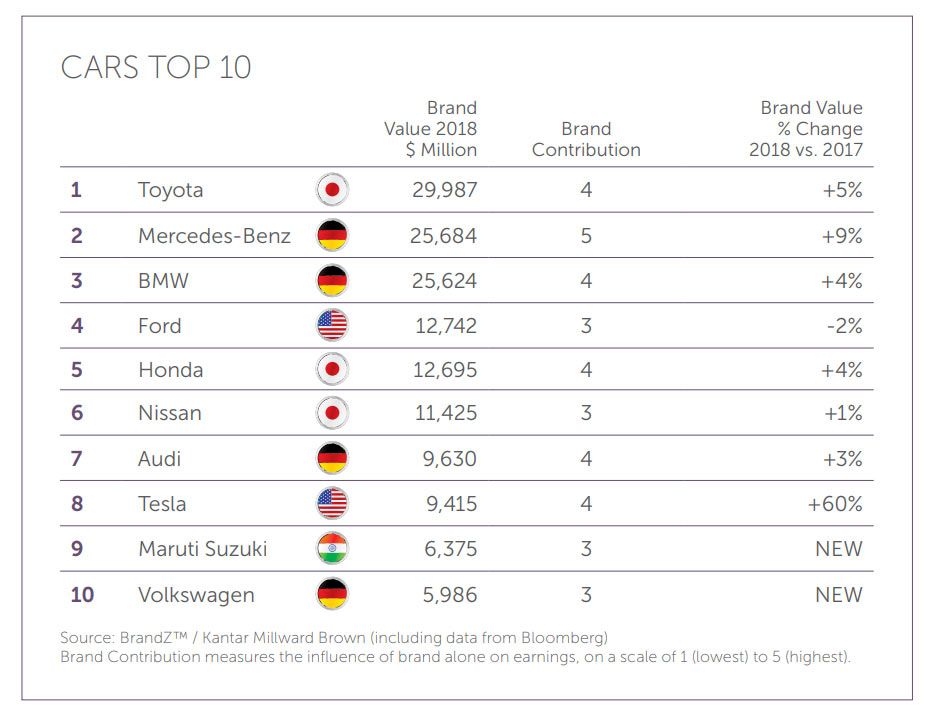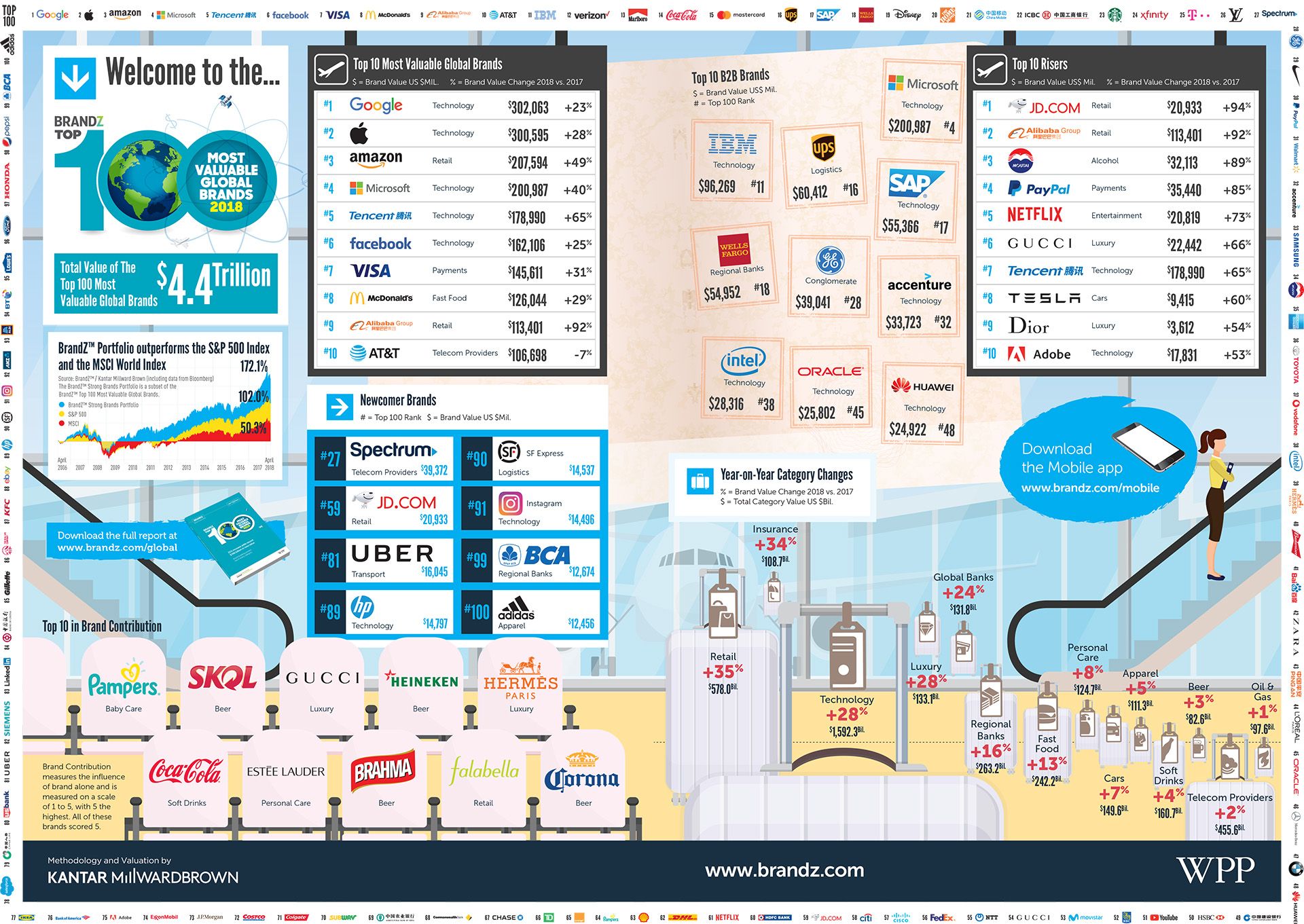Kantar Millward Brown has released their annual BrandZ Top 100 Most Valuable Global Brands report which claims Toyota is once again the most valuable automaker with a valuation of $29.9 billion.
The group says the automotive segment climbed seven percent in value thanks to the strength of crossover and luxury vehicles as well as increasing sales in “most regions of the industrialized world.”
As for Toyota’s #1 ranking, Kantar Millward Brown noted the company’s “reputation for quality and reliability generated a high level of loyalty” and this helped to propel the Camry to become the best-selling sedan in America.
BMW and Mercedes swapped rankings this year as Mercedes climbed nine percent to a $25.68 billion valuation. Likewise, BMW’s value rose four percent to $25.62 billion.
Ford remained in fourth place despite a two percent drop to a valuation of $12.7 billion. That’s surprising given the popularity of trucks and crossovers but not bad considering Kantar Millward Brown says the automaker recently released the “Rapture.”
The companies occupying the 5th to 8th spots remained the same but all saw gains in their valuations. The biggest climber was Tesla which has a valuation of $9.4 billion which is a sixty percent increase from last year. Kantar Millward Brown says this “reflects the fascination with a technology brand that is also in the space travel business and the sense of potential as more affordable Teslas enter the market…”
Maruti Suzuki was a new comer this year as the brand came in 9th with a valuation of $6.3 billion. The firm credits their ranking to strong growth and a network of premium dealerships selling an affordable luxury model through Nexa showrooms.
Rounding out the top ten was Volkswagen with a valuation of $5.9 billion. Despite the never ending dieselgate scandal, Kantar Millward Brown says consumers continued to trust and recommend Volkswagen because of their experience with the brand. However, the report claims consumers don’t trust Volkswagen as a corporation.
It’s worth pointing out these valuations aren’t ‘real’ as the company uses a valuation methodology which factors in “consumer viewpoints to assess brand equity, as we strongly believe that how consumers perceive and feel about a brand determines its success and failure.”







